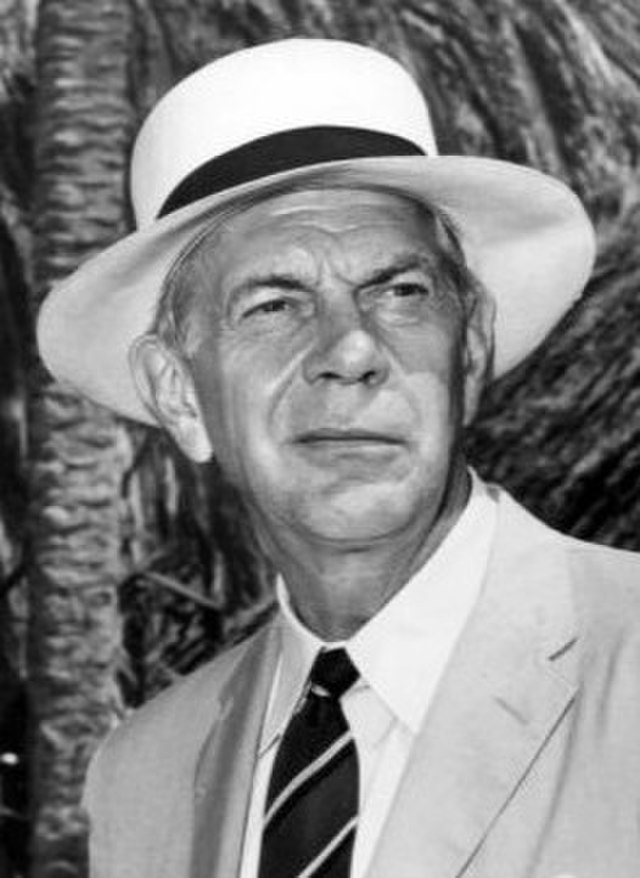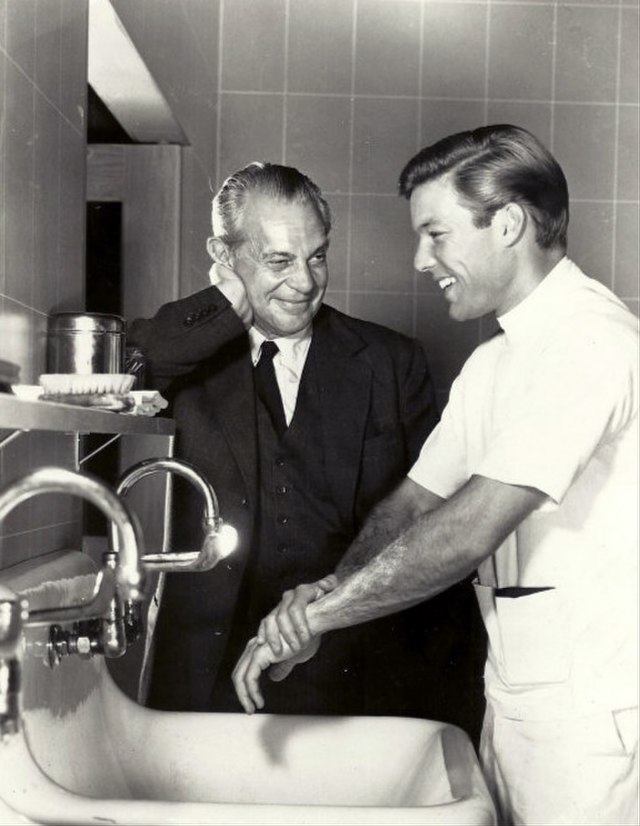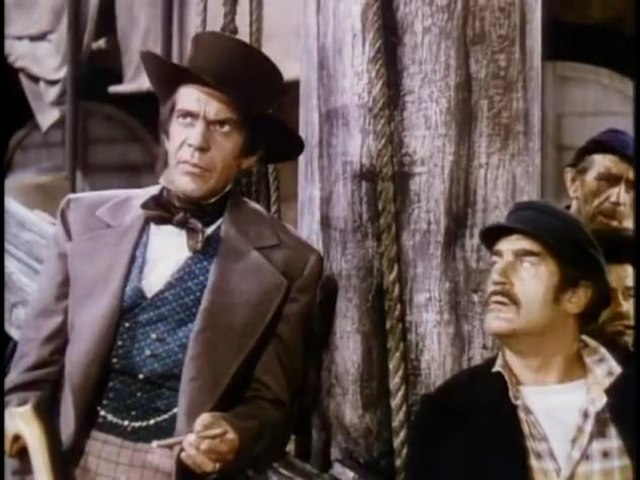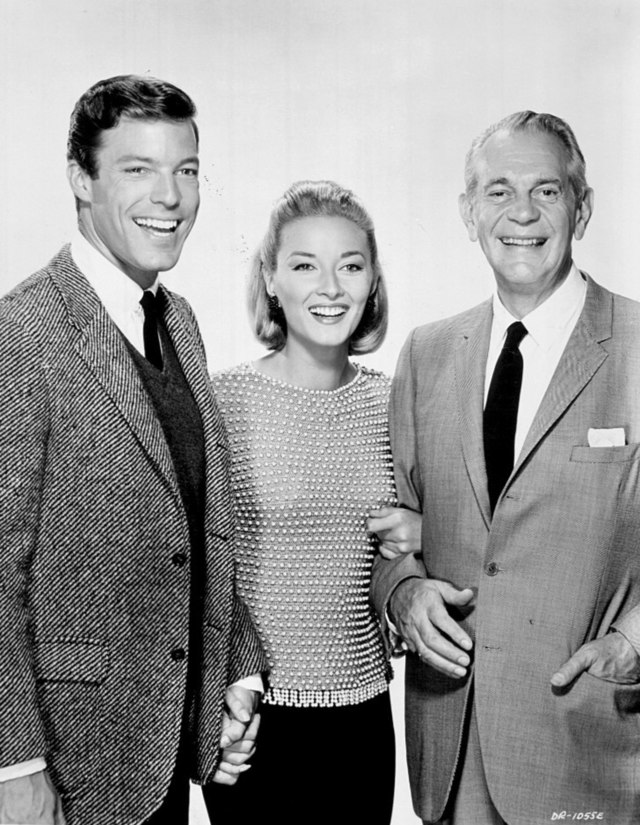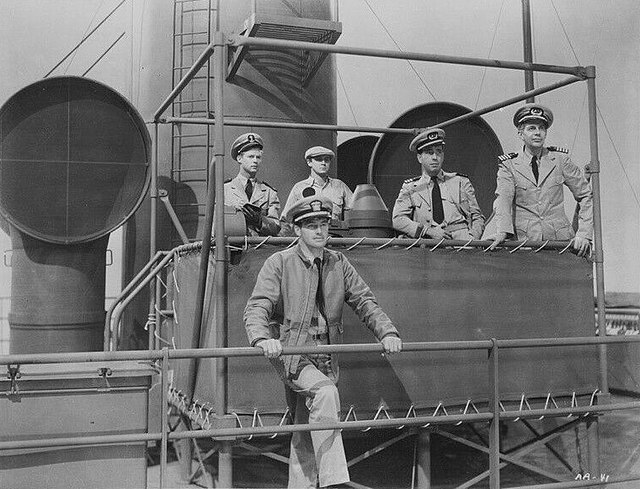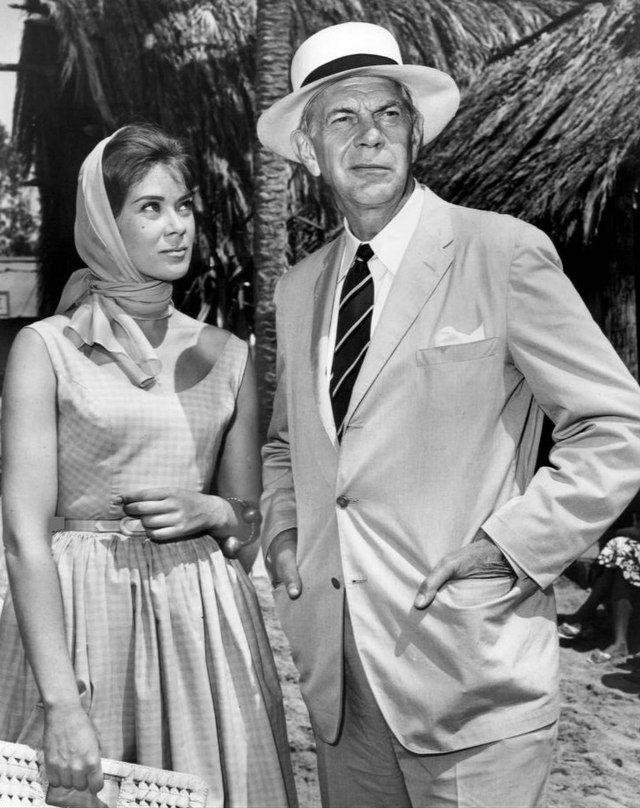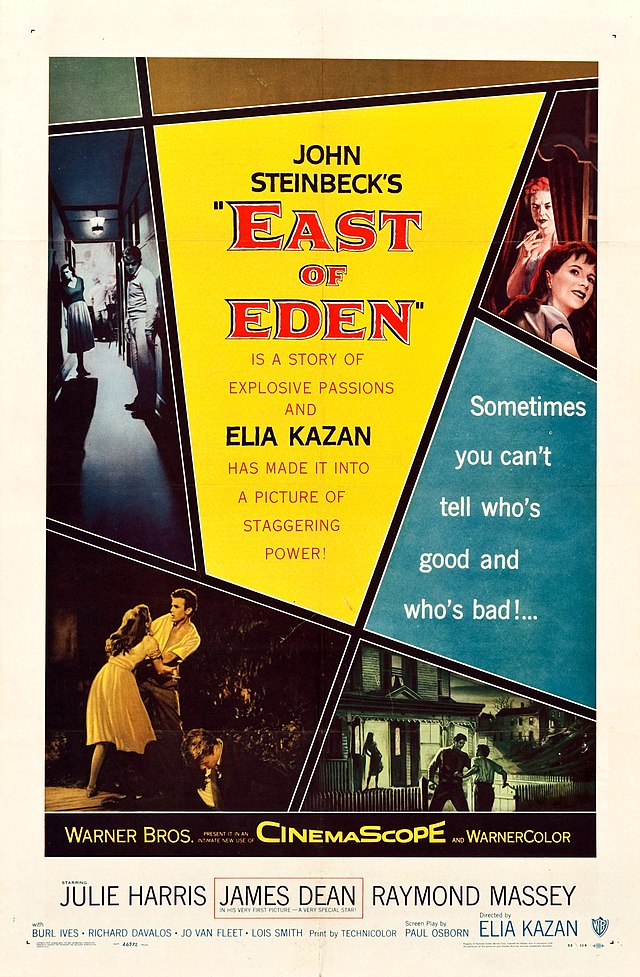Raymond Hart Massey was born on August 30, 1896, in Toronto, Ontario, Canada, into a prominent Canadian family. He was the son of Anna (née Vincent) and Chester D. Massey, who owned the Massey-Harris Company, a major manufacturer of agricultural machinery. Massey grew up in a privileged environment, receiving a stellar education that included time at Appleby College in Canada and Balliol College, Oxford, in England. However, his life would take a dramatic turn, moving from academia and business into the arts.
During World War I, Massey enlisted in the Canadian Army and served with distinction in Europe. He was injured during the war but continued to serve in various capacities. After the war, he returned to Canada and initially entered the family business. However, his passion for storytelling and drama gradually drew him away from industrial work and toward the performing arts.
Massey began his acting career on the stage, working primarily in England during the 1920s. He made his professional debut in 1922 and became known for his commanding voice and stage presence. By the 1930s, he had transitioned to film, where his deep voice and intense demeanor suited a range of roles. He gained attention for his performance in the futuristic science-fiction film Things to Come (1936) and further cemented his reputation with The Prisoner of Zenda (1937).
One of Massey's most iconic roles came in 1940, when he portrayed Abraham Lincoln in Abe Lincoln in Illinois. Massey’s uncanny resemblance to Lincoln, combined with his ability to convey both the gravity and humanity of the 16th U.S. President, earned him widespread acclaim, including an Academy Award nomination for Best Actor. This role defined Massey's career and led to a lifelong association with Lincoln, as he often reprised the role in stage and television productions.
Massey’s Hollywood career flourished in the 1940s and 1950s. Notable films during this period include:
His performances were characterized by a blend of gravitas and vulnerability, making him a standout in both heroic and villainous roles.
Massey’s family life was occasionally tumultuous, especially during his second marriage, which ended in a high-profile divorce.
In the 1950s, Massey transitioned to television, gaining further fame for his role as Dr. Gillespie in the long-running series Dr. Kildare. This role introduced him to a new generation of fans and solidified his reputation as one of the great character actors of his time.
Raymond Massey passed away on July 29, 1983, in Los Angeles, California, at the age of 86. He was laid to rest at Beaverdale Memorial Park in New Haven, Connecticut. Massey is remembered as an actor of remarkable range, with a career that spanned stage, film, and television. His association with Abraham Lincoln remains one of the most enduring aspects of his legacy, and his work continues to be celebrated for its depth and authenticity.
Raymond Massey’s Acting Style
Raymond Massey's acting style was defined by a unique combination of gravitas, precision, and emotional depth, making him one of the most commanding screen presences of his time. His performances were distinguished by the following characteristics:
Commanding Presence and Voice
Massey's deep, resonant voice was one of his most defining attributes. It carried a sense of authority and conviction that lent itself perfectly to roles requiring gravitas, such as statesmen, military leaders, and patriarchs. His measured delivery and deliberate cadence could evoke both power and vulnerability, depending on the role. This vocal strength also made him an exceptional choice for historical figures like Abraham Lincoln, whom he portrayed with both dignity and humanity.
Precision and Discipline
Massey’s training and experience in the British theatrical tradition imbued his performances with a sense of precision. He was meticulous in his movements, posture, and gestures, often using subtle physical cues to convey a character’s inner state. His performances were never flamboyant; instead, he relied on controlled intensity to draw audiences into the emotional core of his characters.
Emotional Restraint with Underlying Intensity
While Massey often played characters who were stoic or restrained, he imbued them with a simmering intensity that hinted at deep emotional currents beneath the surface. This quality allowed him to portray complex figures who struggled with their convictions, responsibilities, or inner demons, as seen in his portrayal of Adam Trask in East of Eden or John Brown in Santa Fe Trail.
Mastery of Historical and Villainous Roles
Massey excelled in period dramas and historical roles, where his classical bearing and authoritative presence were assets. Whether playing Abraham Lincoln in Abe Lincoln in Illinois or King Philip II of Spain in Fire Over England, he brought a sense of authenticity and gravity to his portrayals. Conversely, his villains were equally memorable, marked by an icy composure and an almost magnetic charisma, as seen in The Prisoner of Zenda and Arsenic and Old Lace.
Adaptability Across Genres
While his serious demeanor made him a natural fit for dramas and historical epics, Massey also demonstrated versatility. In comedies like Arsenic and Old Lace, he showed a darker, satirical edge, playing Jonathan Brewster with a mix of menace and humor. His ability to adapt his style to different genres ensured his relevance across a wide array of roles.
Lincolnian Aura
Massey’s physical resemblance to Abraham Lincoln became a defining aspect of his career. Beyond the physical likeness, he brought a profound understanding of Lincoln’s character, blending statesmanship, humility, and emotional vulnerability. His portrayal in Abe Lincoln in Illinois remains a benchmark for actors tackling historical figures.
Stage-to-Screen Transition
Having honed his craft in the theater, Massey carried a theatricality into his screen work without overacting. He balanced the grandeur of stage performance with the subtlety required for film, allowing him to convey intensity even in close-ups.
Seriousness and Intellectual Approach
Massey approached his roles with an intellectual rigor, often diving deeply into the historical or psychological background of his characters. This approach added layers to his performances, making them resonate with authenticity and depth.
Awards and Recognition
Raymond Massey, renowned for his commanding stage presence and distinctive voice, received several notable accolades throughout his career:
• Academy Award Nomination: In 1941, Massey was nominated for the Best Actor Oscar for his portrayal of Abraham Lincoln in Abe Lincoln in Illinois (1940).
• Hollywood Walk of Fame: On February 8, 1960, Massey was honored with two stars on the Hollywood Walk of Fame: one for his contributions to motion pictures at 1719 Vine Street, and another for television at 6706 Hollywood Boulevard.
Personal and Movie Quotes
From His Films:
• "Abe Lincoln in Illinois" (1940):
o "The ballot is stronger than the bullet."
o "I have no other ambition so great as that of being truly esteemed of my fellow men."
• "The Prisoner of Zenda" (1937):
o "A king's life is not his own, nor is his throne. It belongs to the people."
• "Arsenic and Old Lace" (1944):
o (As Jonathan Brewster) "My dear aunts, I'm here to take care of you, just as you've taken care of so many others."
• "East of Eden" (1955):
o "It's not easy to know what is right, and what is wrong. But you have to try."
• "Things to Come" (1936):
o "We’re not going to war; we’re going to remake the world!"
From His Life and Interviews:
• On Playing Abraham Lincoln:
o "Lincoln was not just a man of politics; he was a man of humanity. To step into his shoes is to walk a path of immense responsibility."
• On Acting:
o "The stage teaches you precision; the screen teaches you subtlety. A great actor must master both."
• On Villainous Roles:
o "Playing the villain is an art. You must make them believable, not just evil. The best villains think they’re heroes."
• On His Career:
o "I never sought stardom; I sought stories worth telling and characters worth understanding."
Movies with Raymond Massey
• 1928: "High Treason"
Set in a futuristic world, this film explores the tensions between two global superpowers on the brink of war. Massey appears as a member of the Federated States Council.
• 1929: "The Crooked Billet"
Details about this film are scarce, and it is considered a lost film. Massey's specific role is undocumented.
• 1931: "The Speckled Band"
Massey portrays Sherlock Holmes in this adaptation of Arthur Conan Doyle's story, investigating a mysterious death in an old mansion.
• 1932: "The Old Dark House"
A group of travelers seeks refuge in a creepy mansion during a storm, only to encounter its bizarre inhabitants. Massey plays Philip Waverton.
• 1934: "The Scarlet Pimpernel"
Set during the French Revolution, a British aristocrat secretly rescues condemned French nobles. Massey plays Chauvelin, a determined agent of the French government.
• 1936: "Things to Come"
Based on H.G. Wells' work, this film predicts future global war and reconstruction. Massey plays John Cabal and his descendant Oswald Cabal, central figures in humanity's survival and progress.
• 1937: "Fire Over England"
During the reign of Elizabeth I, an Englishman infiltrates the Spanish court to gather intelligence. Massey portrays King Philip II of Spain.
• 1937: "The Prisoner of Zenda"
An Englishman resembles a Ruritanian king and must impersonate him to save the throne from a treacherous duke. Massey plays the antagonist, Duke Michael.
• 1937: "Dreaming Lips"
A romantic drama involving complex relationships and emotional turmoil. Massey's specific role is less documented.
• 1938: "The Drum"
Set in British India, a young prince allies with the British to thwart a rebellion. Massey plays Prince Ghul.
• 1940: "Abe Lincoln in Illinois"
A biographical film tracing Abraham Lincoln's early life and political rise. Massey's portrayal of Lincoln earned him an Academy Award nomination.
• 1940: "Santa Fe Trail"
Focusing on the events leading up to the Civil War, the film features Massey as abolitionist John Brown, depicting his militant efforts against slavery.
• 1941: "49th Parallel"
A German U-boat crew stranded in Canada attempts to reach the neutral U.S. Massey plays Andy Brock, a Canadian trapper who opposes them.
• 1942: "Desperate Journey"
Allied airmen crash in Nazi-occupied Europe and strive to return home. Massey portrays Major Otto Baumeister, a German officer pursuing them.
• 1942: "Reap the Wild Wind"
In 1840s Key West, two salvagers vie for control and the love of a woman. Massey plays the unscrupulous King Cutler.
• 1943: "Action in the North Atlantic"
The crew of a U.S. merchant ship battles German submarines during WWII. Massey plays Captain Steve Jarvis, leading his men through perilous waters.
• 1944: "Arsenic and Old Lace"
A drama critic discovers his sweet aunts are serial killers. Massey plays Jonathan Brewster, his criminal brother.
• 1944: "The Woman in the Window"
A professor becomes entangled in a murder after meeting a mysterious woman. Massey portrays District Attorney Frank Lalor.
• 1945: "God Is My Co-Pilot"
A WWII pilot recounts his experiences flying with the Flying Tigers in China. Massey plays Major General Claire L. Chennault.
• 1946: "A Matter of Life and Death"
A British airman argues for his life in a celestial court after surviving a near-fatal incident. Massey plays Abraham Farlan, the prosecutor.
• 1947: "Possessed"
A woman descends into madness over unrequited love. Massey portrays Dean Graham, a supportive figure in her life.
• 1947: "Mourning Becomes Electra"
A post-Civil War family is plagued by dark secrets and revenge. Massey plays Ezra Mannon, the family patriarch.
• 1949: "Roseanna McCoy"
A dramatization of the Hatfield-McCoy feud, focusing on a forbidden romance. Massey portrays Randall McCoy, the family leader.
• 1949: "The Fountainhead"
An individualistic architect battles against conventional standards. Massey plays Gail Wynand, a powerful newspaper magnate.
• 1950: "Dallas"
A former Confederate officer seeks justice in post-Civil War Texas. Massey plays Will Marlow, a corrupt landowner.
• 1950: "Chain Lightning"
A test pilot is entangled in personal and professional conflicts. Massey portrays Leland Willis, an aircraft manufacturer.
• 1950: "Barricade"
A ruthless mine owner forces convicts to work in his gold mine. Massey plays "Boss" Kruger, the oppressive owner.
• 1951: "Sugarfoot"
A wandering cowboy becomes involved in a range war. Massey portrays Jacob Stint, a land baron.
• 1951: "David and Bathsheba"
A biblical epic about King David's affair with Bathsheba. Massey plays Nathan, the prophet.
• 1951: "Come Fill the Cup"
A recovering alcoholic journalist helps a young man facing similar struggles. Massey portrays John Ives, a newspaper editor.
• 1952: "Carson City"
Massey plays Alabam, a ruthless outlaw opposing the construction of a railroad through Nevada. The film explores themes of progress versus lawlessness.
• 1953: "The Desert Rats"
A WWII drama about Australian troops fighting Rommel's forces in North Africa. Massey plays General Erwin Rommel, delivering a nuanced portrayal of the German commander.
• "The President's Lady"
A biographical drama focusing on Andrew Jackson and his wife, Rachel. Massey plays Charles Dickinson, a rival involved in a duel with Jackson.
• 1955: "East of Eden"
Massey portrays Adam Trask in this adaptation of John Steinbeck's novel, a patriarch struggling to connect with his sons, played by James Dean and Richard Davalos.
• 1956: "Diane"
Set in the French court of King Francis I, this historical drama features Massey as Ruggieri, an astrologer with sinister motives.
• 1958: "Nowhere to Go"
A British crime drama in which Massey plays a small but pivotal role as a character caught in a web of deceit.
1960s and Later Career
While Massey appeared in fewer films during the 1960s and beyond, his transition to television kept him active in the industry. His role as Dr. Gillespie in the TV series Dr. Kildare (1961–1966) became a defining performance of his later career.

